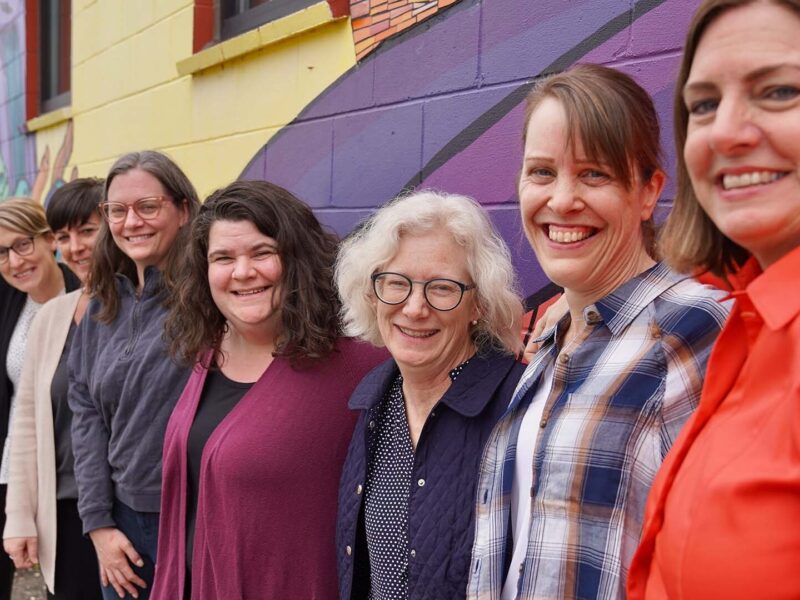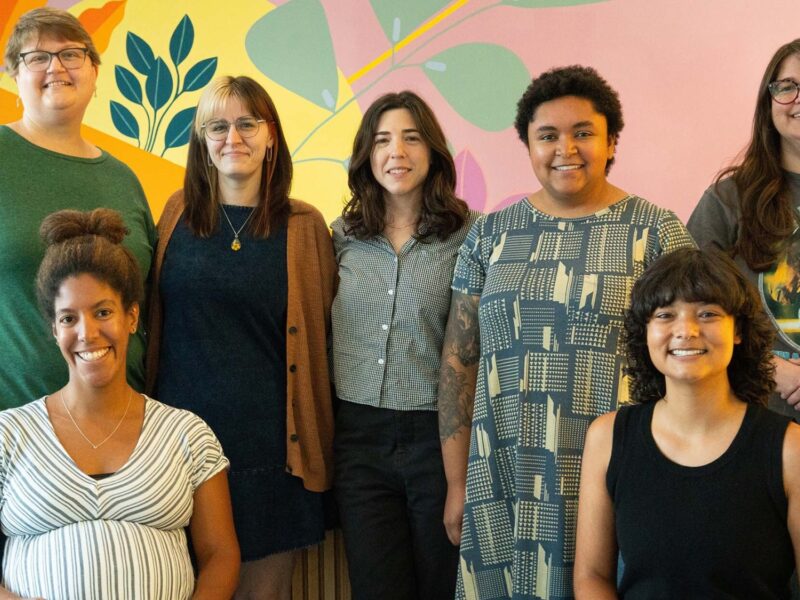Learn how auditor Cathy Lydon works with nonprofits and her tips for choosing an accountant.

The word audit can often drum up anxiety for organizations, but audit director and client manager Cathy Lydon makes a conscious effort to put nonprofit organizations at ease.
Recently the Saint Paul & Minnesota Foundation had the opportunity to sit down with Cathy, Nonprofit Team Leader for Redpath and Company Ltd to learn her best practices when working with nonprofits.
How did you end up in the nonprofit sector?
I ended up in the nonprofit sector by chance. As I was graduating from college, a previous employer offered me an opportunity to work on their higher education and nonprofit team. I was hooked from very early on and knew that working with nonprofits was where I belonged.
My work with nonprofits gives me an opportunity to feel like I'm a part of something bigger. I know my services help relieve the burden caused by the complex requirements of external financial reporting and tax compliance and lets them focus on what matters most, their mission and the people they serve.
Why do you think giving is so important?
Charitable giving is what creates the nonprofit industry. The industry wouldn't exist without the generosity of people, foundations and corporations. Giving is a very simple action that can have an immense and meaningful impact, whether it's giving money to an organization or taking actions by volunteering your time and talent to make this world a better place to live in.
What do you love about working with nonprofits?
I find that employees of nonprofits really care about their organization and its mission, whether it’s healthcare, education, social services or a religion. It's not just a job for them.
Working with people who care so deeply about their employer and the people it serves is what makes working with nonprofits rewarding and fun. It gives our Redpath team members the ability to feel like we are a part of something bigger and that the benefit we provide to our clients reaches far beyond the audit opinion and external financial statements.
As an auditor, how do you set fear aside for organizations when you come around?
I always strive to build a relationship of trust and confidence with our clients at Redpath. We approach each client relationship like it’s a partnership. An audit isn’t necessarily about finding the ‘gotchas’ and pointing out their mistakes. It’s about identifying their weaknesses and helping them develop solutions to strengthen their organization. A lot of my time is spent helping my nonprofit clients learn, grow and understand the rules and requirements that they’re required to follow.
So we know bigger nonprofits typically have accountants on staff. From your experience, do smaller nonprofits have an attorney and accountant on staff to make sure that they’re complying with certain rules?
The Minnesota Attorney General's Office requires audits of nonprofits if their revenue exceeds $750,000, so these aren't the smallest of nonprofits. Typically, they have an accountant in place, whether that's as an employee or as a contracted employee – to provide those services and to evaluate the larger nonprofits.
They have development departments that work closely with finance to ensure that gifts are being structured appropriately, that the revenue is being recorded and that the requirements that donors have attached are being followed.
While nonprofits don’t typically have an attorney on staff, they do frequently have a relationship with an attorney to provide assistance when needed.
Are there any questions nonprofits should ask CPA firms when interviewing them, or talking with them for the first time?
A nonprofit organization will want to ask questions to help them understand the history and experience an auditor has working with nonprofit organizations. Even further, I think it’s important to ask questions to identify the training and expertise of the specific individuals who will be assigned to their account. They’ll want to know if the CPA firm has a team who is designated to the nonprofit industry or if they use nonprofit organizations to fill their down time or to serve as a training ground for their newer staff.
It’s also important to understand the level of attention the audit firm is committed to provide. Will their audit team disappear for the year once the audit is issued, or will they remain available and responsive for questions and guidance throughout the year?
Finally, if your nonprofit organization receives federal awards, it is incredibly important to ensure that your auditor has expertise in performing audits of your federal expenditures under the Uniform Guidance. This need is amplified due to the significant funding that has been pushed out by the federal government in response to the COVID-19 pandemic.
You just started on the Cornerstone Council. What are your thoughts on our non-cash asset work and gift acceptance?
For nonprofits, especially on the fundraising and development side, there's this concept of creating a gift acceptance policy. This policy is created to provide a framework of the types of gifts an organization can accept to ensure that they’re not accepting gifts that can't be used to benefit their organization or gifts that may burden their organization with liabilities in the future.
If nonprofits are interested in expanding their ability to accept non-cash assets or other unique gifts, I think they should consider working with the Saint Paul & Minnesota Foundation. The Foundation can be used as an extension of their development department, allowing them the ability to accept a broader variety of gifts and effectively use them towards their mission.
Learn about gift acceptance policies and more in our nonprofit endowment toolkit.
This interview has been edited for length and clarity.
Cathy is a member of the Saint Paul & Minnesota Foundation’s Cornerstone Council, an advisory group of professional advisors who help fellow colleagues learn more about the Foundation and assist us in learning how to better serve advisors and their clients in charitable planning.









